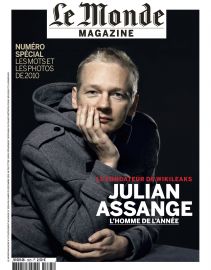
This is the first of a series of posts by Daniel Dayan exploring the significance of WikiLeaks.
Is WikiLeaks a form of spying? Transferring information to an alien power can induce harm. This is why spying constitutes a crime. In the case of WikiLeaks, the transfer concerns hundreds thousands of documents. The recipients include hundreds of countries, some of which are openly hostile. In a way WikiLeaks is a gigantic spying operation with a gigantic number of potential users. Yet, is it really “spying?”
Spying (in its classical form ) involves a specific sponsor in need of specific information to be used for a specific purpose, and obtained from an invisible provider. WikiLeaks “spies” eagerly seek to be identified (Julian Assange, WikiLeaks founder and editor in chief, has been voted Le Monde’s “man of the year”). Information covers every possible domain, and there is no privileged recipient. Anyone qualifies as a potential beneficiary of Wiki-largesses and most of those who gain access to the leaked information have no use for it. Spying has become a stage performance.
On 9/11 a group of Latin American architects hailed the destruction of The Twin Towers as a sublime event. The pleasure of seeing Rome burning had been made available for the man of the street. It was –suggested the builders – a democratization of Neronism. In a way, WikiLeaks, could also be described as a democratization of spying. It offers a form of “public spying.” Distinct from mere spying (a pragmatic activity), it proposes “spying as a gesture.” This gesture concerns other gestures. What WikiLeaks discloses is less (already available) facts than the tone in which they are expressed.
Content or gestures? 
If the Assange leaks reveal nothing that we did not know already, what counts is less their propositional content than the enacted speech acts. The vocabulary of WikiLeaks gestures starts with the noble gestures of war. Many commentators tell the WikiLeaks saga in military terms. For the Umberto Eco, it is a“ blow:” “To think that a mere hacker could access the . . .
Read more: WikiLeaks and the Politics of Gestures